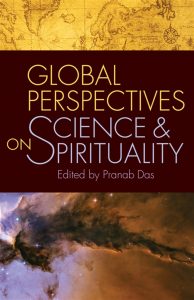Page 49 of 56
Religious Studies pizza gathering Oct. 28
October 21, 2009
Professor’s new book examines nexus of science and religion
September 8, 2009
Featuring work by top scholars from around the world, Global Perspectives on Science and Spirituality, a new book edited by Elon University professor Pranab Das, has been published with essays on an array of approaches to science and religion grounded in spiritual traditions ranging from Daoism to Eastern Orthodoxy and treating many scientific disciplines.
Tripp York publishes in Christian Ethics Today
May 13, 2009
Tripp York, an instructor in religious studies, published a satirical prayer titled "A Prayer to the All-Powerful, All-Knowing and Beneficent God Who Really Loves Sports (but not the Orioles and Some South Asians)" in the Spring 2009 edition of Christian Ethics Today.
Christian anarchists topic of book by Tripp York
May 5, 2009
Tripp York, an instructor of religious studies at Elon, explores the lives of Christian anarchists who attempted to address materialism, racism and militarism in Living on Hope While Living in Babylon: The Christian Anarchists of the 20th Century, published this month by Wipf & Stock and York’s third book since 2007.
Toddie Peters delivers lecture at Furman Unviersity
March 26, 2009
Religious Studies student, faculty present at SECSOR conference
March 19, 2009
Kristen Rectenwald, a senior in the Department of Religious Studies, gave a paper titled "From Divine Judgment to Medical Diagnosis: Tracking Disease in British Consciousness" as part of the undergraduate research section of the American Academy of Religion and Society of Biblical Literature southeast regional meeting in Greensboro, N.C., on March 14.
Book by Tripp York recognized by The Mennonite magazine
March 18, 2009
The Purple Crown: The Politics of Martyrdom, a book by Tripp York in the Department of Religious Studies, was recently voted one of the best books of 2008 by the magazine The Mennonite.
Pamela Winfield presents paper at SECSOR conference
March 17, 2009
Pamela Winfield, an assistant professor of religious studies, presented a paper, "Religion and the State in Japan: The Case of Shinnyo-en," and served as moderator and panel respondent to a panel on Orientalism and "The Pull of the East" at the annual SECSOR / regional AAR conference in Greensboro, N.C., from March 13-14.





